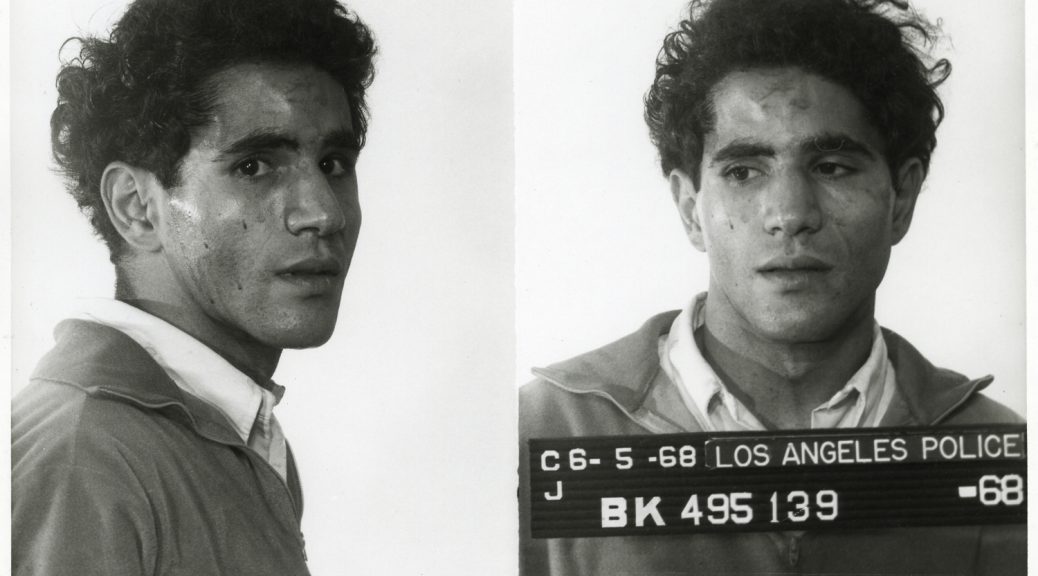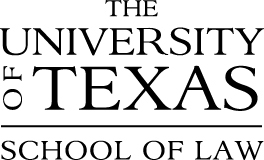June 5 Peace Love Art Activism
Vietnam
House of Nguyen
June 5, 1862: representatives of the French Empire and the last precolonial emperor of the House of Nguyen, Emperor Tự Đứ signed the Treaty of Saigon. Based on the terms of the accord, Tự Đức ceded Saigon, the island of Poulo Condor and three southern provinces of what was to become known as Cochinchina. (see October 17, 1887)
My Lai Massacre
June 5, 1969: Lieutenant Calley identified as a suspect in an official inquiry and recalled to the U.S. (see My Lai for expanded story; next Vietnam, see June 8)
June 5 Peace Love Art Activism
US Labor History
Hague v. Committee for Industrial Organization
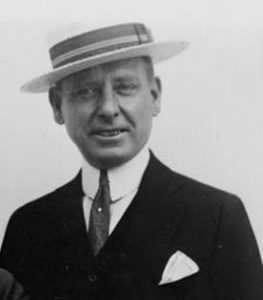 June 5, 1939: the case involved Jersey City, New Jersey Mayor Frank “Boss” Hague who had in 1937 used a city ordinance to prevent labor meetings in public places and stop the distribution of literature pertaining to the CIO’s cause. He referred to them as “communist.”
June 5, 1939: the case involved Jersey City, New Jersey Mayor Frank “Boss” Hague who had in 1937 used a city ordinance to prevent labor meetings in public places and stop the distribution of literature pertaining to the CIO’s cause. He referred to them as “communist.”
District and circuit courts had ruled in favor of the CIO, which brought the suit against the mayor for these actions. Hague appealed to the Supreme Court which ruled against him and held that Hague’s ban on political meetings violated the First Amendment right to freedom of assembly, and so the ordinances were void. [Oyez article] (April 28, 1940)
United Farm Workers
June 5, 1968: Sirhan Sirhan shot and killed Robert F. Kennedy while RFK was on his way to thank the many farm worker volunteers who helped him win the California Democratic Primary. Dolores Huerta was standing next to Kennedy as he was shot. (UFW, see May 18, 1969; Kennedy, see June 6)
Agricultural Labor Relations Act of 1975
June 5, 1975: California Governor Jerry Brown signed the Agricultural Labor Relations Act of 1975. It was designed to protect rights of farm workers to act together to help themselves, to engage in union organizational activity, and to select their own representatives to bargain with employers.
César E. Chávez
July – August 1975: to educate farm workers about their newly-won rights, Chavez embarked upon his longest, and least known, march, a 1,000-mile 59-day trek from the Mexican border at San Ysidro north along the coast to Salinas and then from Sacramento south down the Central Valley to the UFW’s La Paz headquarters at Keene, southeast of Bakersfield. Tens of thousands of farm workers march and attend evening rallies to hear Chavez and organize their ranches. (see May 1976)
June 5 Peace Love Art Activism
Japanese Internment Camps
June 5, 1942: first evacuation completed. Subsequently the remaining parts of California were evacuated, this being completed August 7, 1942. (see Internment for expanded story)
June 5 Peace Love Art Activism
BLACK HISTORY
Douglas Lemon and Rankin Moore Lynched
June 5, 1910: a white mob lynched Douglas Lemon and Rankin Moore, two Black men, as they were walking home from a community festival in Orange County, Texas.
In the days leading up to the lynchings, white mobs had targeted and terrorized the Black community in Orange County, furious that a jury had recently failed to convict a Black man named Jack White of killing a white man. In addition to lynching Mr. Lemon and Mr. Moore, the white mob shot into the Black district of town and fired at other Black men, who managed to survive. No one was ever held accountable. [EJI article] (next BH, see June 14; next Lynching, see June 10 or see AL2 for expanded chronology)
School Desegregation, June 5, 1950
- in Sweatt v. Painter the US Supreme Court ordered the University of Texas Law School to admit black students because a law school founded for blacks could not be equal to the established and prestigious white law school. [Oyez article]
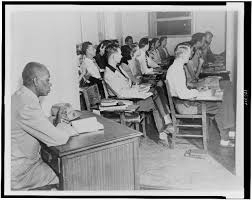 in McLaurin v. Oklahoma State Regents the US Supreme Court ruled that a public institution of higher learning could not provide different treatment to a student solely because of their race as doing so deprived the student of their Fourteenth Amendment rights of Equal Protection. (BH, see June 5; SD, see January 20, 1951)
in McLaurin v. Oklahoma State Regents the US Supreme Court ruled that a public institution of higher learning could not provide different treatment to a student solely because of their race as doing so deprived the student of their Fourteenth Amendment rights of Equal Protection. (BH, see June 5; SD, see January 20, 1951)
Accordingly, the high court reversed the decision of the US District Court, requiring the University of Oklahoma to remove the restrictions under which George W McLaurin was attending the institution. (SD, see Nov 23)
Henderson v. United States
June 5, 1950: in Henderson v. United States the US Supreme Court abolished segregation in railroad dining cars. The Court did not rule on the constitutionality of “separate but equal” in this instance but did find that the railroad had failed to provide the passenger with the same level of service provided to a white passenger with the same class of ticket, a violation of principles already established in Mitchell v. United States (1941) [Justia article] (see July 29)
Browder v Gayle
June 5, 1956: the US District Court ruled that “the enforced segregation of black and white passengers on motor buses operating in the City of Montgomery violates the Constitution and laws of the United States,” because the conditions deprived people of equal protection under the Fourteenth Amendment. The court further enjoined the state of Alabama and city of Montgomery from continuing to operate segregated buses. [Oyez article] (BH, see Aug 25; B v G and MBB, see Nov 13)
James H Meredith
June 5, 1966: from Memphis, TN, Meredith began a 220-mile march to Mississippi to “inspire Mississippi Negroes to register to vote and to help Negroes to conquer the fear they feel while living and traveling in Mississippi.” He traveled without any official escorts. [Jackon Free Press article] (see June 6)
William Zanzinger
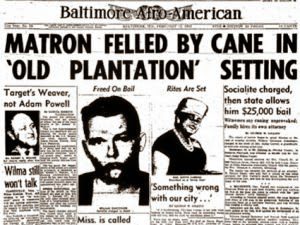 June 5, 1991: authorities served William Zanzinger with a summons charging him with the crime of “deceptive trade practice.” In the document, State’s Attorney Len Collins charged Zantzinger with one count of making a “false and misleading oral and written statement” that had served to mislead a couple who had rented a house in Patuxent Woods a year earlier. The charge, a misdemeanor, carried a potential penalty of a year in jail and a $1,000 fine. (BH, see June 25; Z, see July 1)
June 5, 1991: authorities served William Zanzinger with a summons charging him with the crime of “deceptive trade practice.” In the document, State’s Attorney Len Collins charged Zantzinger with one count of making a “false and misleading oral and written statement” that had served to mislead a couple who had rented a house in Patuxent Woods a year earlier. The charge, a misdemeanor, carried a potential penalty of a year in jail and a $1,000 fine. (BH, see June 25; Z, see July 1)
Dee/Moore Murders
June 5, 2009: an en banc panel of the Court of Appeals upheld James Seales’s original conviction. (see D/M for expanded story)
137 SHOTS
June 5, 2015: East Cleveland Mayor Gary Norton said the city had decided not pursue charges against 12 officers involved in a police chase and shooting that ended in the deaths of two people on Nov. 29, 2012.
“After further conversations with prosecutors, the prosecutors involved did say to me that it’s unlikely that those charges will be filed based on the evidence available,” Norton said” …The reality is that we really were interested in bringing charges against those 12, because I really want to know was this within the bounds of the law or outside the bounds of the law? That’s really my concern.”
Norton had previously stated the city was considering filing negligent homicide charges against the 12 police officers. (see 137 for expanded story)
Voting Rights
June 5, 2017: for the third time in recent weeks, the Supreme Court took action on a voting rights dispute in North Carolina, affirming a decision striking down many General Assembly districts in the state for relying too heavily on race.
The court’s summary order gave no reasons, but the question in the case was similar to one the justices addressed last month (see May 22, 2017). In that case, the court struck down two of the state’s congressional districts as racial gerrymanders.
The new cases presented the same basic question in the context of the state’s General Assembly.
Last August, a three-judge Federal District Court unanimously struck down 28 state House and Senate districts drawn by the Republican-led Legislature in 2011, saying the districts violated equal protection principles by using race as the predominant factor without good reason. The court rejected the state’s argument that the districts were justified as an attempt to comply with the Voting Rights Act.
The court said it made “no finding that the General Assembly acted in bad faith or with discriminatory intent in drawing the challenged districts,” and it noted that they had been approved by the Justice Department under a part of the Voting Rights Act later effectively struck down by the Supreme Court. “Nor do we consider whether the challenged districts involved any impermissible ‘packing’ of minority voters,” the court added.
Nonetheless, the trial court said, lawmakers ha2020, d violated the Equal Protection Clause by focusing too heavily on race in drawing the contested districts. The Supreme Court affirmed that ruling in North Carolina v. Covington, No. 16-649. (see Dec 29)
Colin Kaepernick
June 5, 2020: though not mentioning Colin Kaepernick by name, NFL commissioner Roger Goodell, issued his strongest support yet for the players seeking to fight racism and police brutality.
In a swift response to a video montage featuring star players asking the league to address systemic racism, Goodell said he apologized for not listening to the concerns of African-American players earlier and said he supports the players’ right to protest peacefully.
(next BH, see June 17; next CK, see July 6)
June 5 Peace Love Art Activism
see June 5 Music et al for more
Elvis Presley
June 5, 1956: Elvis Presley’s second appearance on The Milton Berle Show when he set his guitar aside and put every part of his being into a blistering, scandalous performance of “Hound Dog.” Elvis had already made six appearances on Tommy and Jimmy Dorsey’s Stage Show, and on April 3, he appeared for the first time with Uncle Miltie. But every one of those appearances featured Elvis either in close-up singing a slow ballad, or full body but with his movements somewhat restricted by the acoustic guitar he was playing. It was on his second Milton Berle Show appearance that he put the guitar aside and America witnessed, for the very first time, the 21-year-old Elvis Presley from head to toe, gyrating his soon-to-be-famous (or infamous) pelvis. (RoR, see June 18; Elvis, see Sept 9)
Bob Dylan
June 5, 1959: Dylan graduated from high school. One of his uncles left some records by Leadbelly. Dylan found the music and lyrics more meaningful than the songs he’d been covering and began to learn how to play folk music. (see In March – April 1960)
Running Scared
June 5 – 18, 1961, “Running Scared” by Roy Orbison #1 Billboard Hot 100. The song is unusual in that it has no chorus, but simply builds to a vocal climax.
Rolling Stones
June 5, 1964, the Rolling Stones started their first US tour. (see Oct 25)
Mississippi River Festival
June – July 1969: the Mississippi River Festival at Southern Illinois University had a variety of performers many of whom would later play at Woodstock in August. (see Mississippi for expanded story)
June 5 Peace Love Art Activism
Technological Milestone
 June 5, 1977: the Apple II, the first personal computer went on sale. [Wired article] (see September 6, 1978)
June 5, 1977: the Apple II, the first personal computer went on sale. [Wired article] (see September 6, 1978)
June 5 Peace Love Art Activism
FREE SPEECH
see William French for more
June 5, 1961: a grand jury cleared William French of charges associated with the April 30 Washington Square demonstration. (see July 6)
Nazi march
June 5, 1978: the Village of Skokie filed its Petition for Writ of Certiorari in the United States Supreme Court requesting review of the opinion of the United States Court of Appeals 7th Circuit, rendered in the Nazi case. [Skokie History article] (see June 22)
June 5 Peace Love Art Activism
AIDS
First cases reported
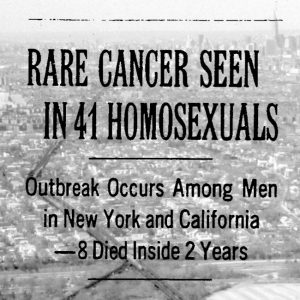 June 5, 1981: The Centers for Disease Control and Prevention reported that 5 men in Los Angeles, California had a rare form of pneumonia seen only in patients with weakened immune systems (the first recognized cases of AIDS). [CDC article] (see July 3)
June 5, 1981: The Centers for Disease Control and Prevention reported that 5 men in Los Angeles, California had a rare form of pneumonia seen only in patients with weakened immune systems (the first recognized cases of AIDS). [CDC article] (see July 3)
25 years
June 5, 2006: 25 years since the first AIDS cases were reported. (see June 18)
June 5 Peace Love Art Activism
Tiananmen Square
June 5, 1989: the “Tank Man” in Tiananmen Square
June 5 Peace Love Art Activism
CLINTON IMPEACHMENT
June 5, 1998: appeals court fast tracks attorney-client privilege dispute. Federal Judge Norma Holloway Johnson ruled that while Monica Lewinsky’s book purchases did have a bearing on her case, only Kramer Books — and not Barnes & Noble — would be required to hand over records of her purchases. (see Clinton for expanded story)
June 5 Peace Love Art Activism
Deepwater Horizon Oil Spill
June 5, 2010: President Obama made a third trip to Louisiana since the disaster began visits Grand Isle, Louisiana for the second time in two weeks. (see June 11)
June 5 Peace Love Art Activism
LGBTQ
Prop 8
June 5, 2012: the full U.S. Court of Appeals for the Ninth Circuit denied anti-gay activists’ petition for an en banc rehearing of the Proposition 8 case. The denial of the petition meant that the Court’s decision from February 2012, which found Prop. 8 to be unconstitutional, will stand. The case has since been submitted for consideration by the U.S. Supreme Court. [Gibson Dunn article] (see June 6)
Guam
June 5, 2015: Guam became the first U.S. territory to recognize gay marriage after U.S. District Court Chief Judge Frances M. Tydingco-Gatewood struck down the prohibition. [NY Post article] (see June 11)
June 5 Peace Love Art Activism
Kandahar massacre
June 5, 2013: Robert Bales pleaded guilty in a plea deal to 16 counts of murder and six counts of assault and attempted murder. When asked by Judge Col. Jeffery Nance “What was your reason for killing them?”, he said he had asked himself that question “a million times” and added, “There’s not a good reason in this world for why I did the horrible things I did.” He maintained he didn’t recall setting bodies on fire, but admitted the evidence was clear that he had. He said he’d taken the steroids solely to be “huge and jacked” and blamed them for “definitely” increasing his irritability and anger. [NYT article] (see Aug 23)
June 5 Peace Love Art Activism
Feminism
Malala Yousafzai
June 5, 2015: Pakistani officials said that a court had released eight of the 10 men accused of conspiring in the shooting of schoolgirl activist Malala Yousufzai, in an admission that brought new scrutiny of Pakistan’s faltering efforts to try Islamist militants in the courts.
When the trial ended on April 30, a prosecutor told reporters that all 10 had confessed to a role in the attack, and the police said they had been convicted and imprisoned for 25 years each. But, on this date, when the court published its written judgment, it revealed that only two of the accused men, identified as Izharullah Rehman and Israrur Rehman, had been convicted and imprisoned, sentenced to life. The eight others had been freed. (Sept 17)
Miss America
June 5, 2018: Gretchen Carlson, the chairwoman of the Miss America board of directors, announced that the event would no longer feature a swimsuit portion.
Miss America will be a competition, not a pageant.
“We will no longer judge our candidates on their outward physical appearance. That’s huge,” she said.
Carlson also said the new Miss America competition will be more inclusive to women of “all shapes and sizes.” (see Oct 23)
June 5 Peace Love Art Activism
Sexual Abuse of Children
June 5, 2015: prosecutors in Minnesota filed criminal charges against the Roman Catholic Archdiocese of St. Paul and Minneapolis, accusing church leaders of mishandling repeated complaints of sexual misconduct against a priest and failing to follow through on pledges to protect children and root out pedophile clergymen.
The charges and accompanying civil petition, announced by the Ramsey County prosecutor, John J. Choi, stem from accusations by three male victims who say that from 2008 to 2010, when they were under age, a local priest, Curtis Wehmeyer, gave them alcohol and drugs before sexually assaulting them.
The criminal case amounted to a sweeping condemnation of the archdiocese and how its leaders handled the abuse allegations — even after reforms were put in place by church leaders to increase accountability — and the charges were among the most severe actions taken by American authorities against a Catholic diocese. “Today, we are alleging a disturbing institutional and systemic pattern of behavior committed by the highest levels of leadership of the Archdiocese of St. Paul and Minneapolis over the course of decades,” Mr. Choi said in a statement.
The six criminal charges filed Friday, misdemeanors with a maximum fine of $3,000 each, accused the archdiocese of failing to protect children. Mr. Choi also filed a civil petition against the archdiocese that he said was intended to provide legal remedies to prevent similar inaction from happening again. [NYT article] (see June 10)
June 5 Peace Love Art Activism
Student Rights/Fourth Amendment
June 5, 2017: the U.S. Supreme Court declined to hear a Missouri technical college’s challenge of a ruling that its mandatory drug testing policy was unconstitutional when applied to all students.
The court refused without comment to intervene at the request of 1,200-student State Technical College of Missouri, the 56-year-old school formerly known as Linn State Technical College.
The college had insisted that fostering a drug-free environment amounted to a “special need” justifying departure from the usual warrant and probable-cause requirements. The American Civil Liberties Union countered that such universal drug testing was unconstitutionally invasive.
Under a ruling last December by the 8th U.S. Circuit that quashed the college’s blanket drug-screening policy as a condition of enrollment, the school can test students enrolled in a handful of programs with public safety concerns. Those include heavy machinery and aviation maintenance.
“This case establishes — once and for all — that under the Fourth Amendment, every person has the right to be free from an unreasonable search and seizure, including college students,” the ACLU, which filed the class-action lawsuit in 2011, said. [US News article] (next SR, see Oct 2; next 4th, see May 1, 2018)
June 5 Peace Love Art Activism
Cold War/Cuba
June 5, 2019: the Trump administration ended a nearly 2-decade-old program that had become the most popular way for Americans to legally visit Cuba, banning all trips by cruise ships and other recreational vessels in the process.
The changes were intended to further squeeze the Cuban economy while keeping U.S. dollars “out of the hands” of the communist government.
“This administration has made a strategic decision to reverse the loosening of sanctions and other restrictions on the Cuban regime. These actions will help to keep U.S. dollars out of the hands of Cuban military, intelligence, and security services,” Treasury Secretary Steven Mnuchin said in a statement.
Mnuchin, who joined Trump on his first state visit to the United Kingdom this week, added that Cuba, with a population of fewer than 12 million people, “continues to play a destabilizing role in the Western Hemisphere, providing a communist foothold in the region and propping up U.S. adversaries in places like Venezuela and Nicaragua.” (see June 30)
June 5 Peace Love Art Activism
SEPARATION OF CHURCH AND STATE
June 5, 2023: the Statewide Virtual Charter School Board voted 3-2 to approve the funding of the St. Isidore of Seville Virtual Charter School. If legal, it would be the first publicly funded religious school in the nation, despite a warning from Oklahoma Attorney General Gentner Drummond that the decision was unconstitutional.
The online public charter school would be open to students across the state in kindergarten through grade 12.
Drummond had warned the board that such a decision clearly violated the Oklahoma Constitution. [AP article] (next Separation, see June 19, 2024)
Native Americans
June 5, 2025: roughly 73 square miles (189 square kilometers) of homelands were returned to the Yurok, more than doubling the tribe’s land holdings. Completion of the land-back conservation deal along the lower Klamath River — a partnership with Western Rivers Conservancy and other environmental groups — was called the largest in California history. [AP article] (next NA, see )

